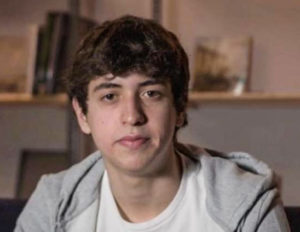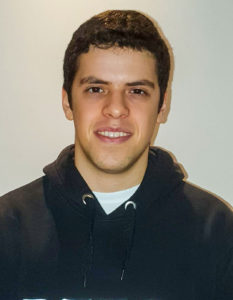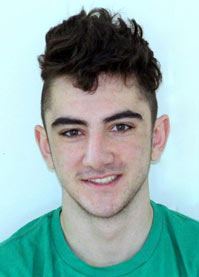Jason ’22
Greece
![]()
The Co-op Curriculum
Northeastern

Jason was a strong student who saw himself as an entrepreneur and business leader. He enjoyed problem-solving, even designing a solar scooter to lessen his commute to school. His love for experiential learning would influence his final college list.
Jason lost his childhood friend in a boating accident when he was 10 years old. Witnessing such a tragic accident had a huge impact on his life. At first, he struggled. His late friend’s family approached him to join Safe Water Sports to help raise awareness for water safety. He began with simple clerical work and assisted on various projects.
In high school, his brother introduced him to The Home Project, an organization that supported refugee minors. He couldn’t stop thinking of the refugees’ isolation when Greece went into COVID lockdown. He proposed a Zoom series co-hosted by Safe Water Sports and The Home Project. Jason felt he was the perfect person to introduce “safe water sports” to refugees who lost loved ones to the sea, having lost his own friend years earlier. He held his first one-hour Zoom meeting on Christmas Day 2020. As an experiential learner himself, he kept the refugees engaged with interactive games. The Ministry of Health learned about his efforts and cast him in a national PSA focused on the health of teenagers during the pandemic.
COVID prevented Jason from traveling to the USA for a college tour, but he knew he was looking for a business program with an emphasis on entrepreneurship. We researched schools with unique interactive curriculums that would satisfy his interests. In April 2022, as travel restrictions relaxed, his family was finally able to plan a college tour of his accepted schools. Jason knew before he arrived that Northeastern, with their global experiential co-op program, was his top choice. Visiting the school affirmed his decision, and he will move to Boston—popularly known as College Town, USA—this fall.


 Philip approached The Short List as a sophomore wanting to discuss whether he should continue following the Greek national curriculum or move to an International Baccalaureate (IB) curriculum for his final two years of high school. That was not the last time we would discuss curriculums with him.
Philip approached The Short List as a sophomore wanting to discuss whether he should continue following the Greek national curriculum or move to an International Baccalaureate (IB) curriculum for his final two years of high school. That was not the last time we would discuss curriculums with him. Kosta’s family is from Greece, and they knew very little about the US college admissions process when we first met. They initially engaged us for our test prep tutoring. We invited Kosta to join one of our group programs, which typically consist of five to 10 students who go through the admissions process together. Each participant benefits not only from the direct guidance and advice of two counselors from The Short List but also feedback from their fellow students.
Kosta’s family is from Greece, and they knew very little about the US college admissions process when we first met. They initially engaged us for our test prep tutoring. We invited Kosta to join one of our group programs, which typically consist of five to 10 students who go through the admissions process together. Each participant benefits not only from the direct guidance and advice of two counselors from The Short List but also feedback from their fellow students.